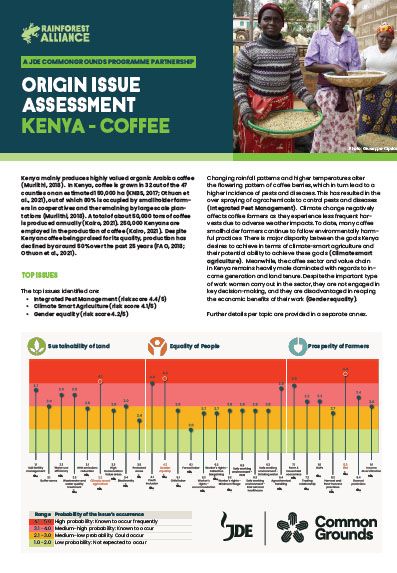Origin Issue Assessment: Kenya Coffee
As part of the JDE Common Grounds program, the Rainforest Alliance investigated the key risks present in Kenya’s coffee sector. Research shows that the following risks are present in Kenya’s coffee sector: integrated pest management, climate smart agriculture, and gender equality.
Fluctuating precipitation and higher temperatures alter the flowering pattern of coffee berries, which in turn lead to a higher incidence of pests and diseases. This has resulted in the over spraying of agrochemicals to control pests and diseases (Integrated Pest Management). Climate change negatively affects coffee farmers as they experience less frequent harvests due to adverse weather impacts. To date, many coffee smallholder farmers continue to follow environmentally harmful practices. There is major disparity between the goals Kenya desires to achieve in terms of climate-smart agriculture and their potential ability to achieve these goals (climate-smart agriculture).
Meanwhile, the coffee sector and value chain in Kenya remains heavily male dominated with regards to income generation and land tenure. Despite the important type of work women carry out in the sector, they are not engaged in key decision-making, and they are disadvantaged in reaping the economic benefits of their work (gender equality).
